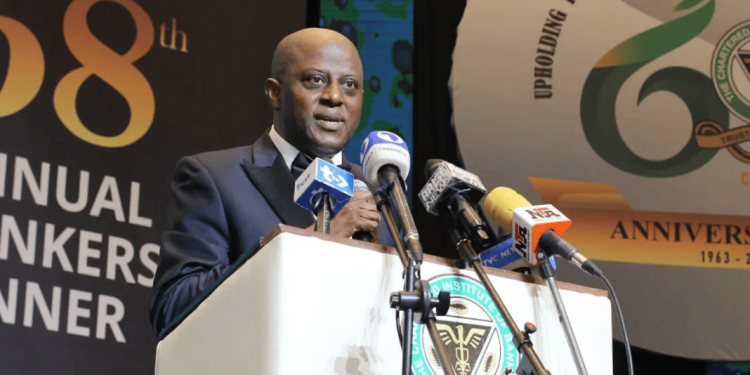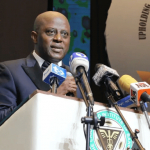The Central Bank of Nigeria (CBN) has launched three initiatives aimed at boosting financial inclusion, particularly for women, MSMEs, and forcibly displaced persons. This announcement was made at the International Financial Inclusion Conference in Lagos, themed “Inclusive Growth: Harnessing Inclusion for Economic Development.”
The initiatives include a Women Financial Inclusion Dashboard to help policymakers close gender gaps in finance, the Women Entrepreneurs Finance Code to improve global financing for women-owned MSMEs, and a Financial Inclusion Roadmap for forcibly displaced persons to enable them to access essential services and achieve economic stability.
CBN Governor Olayemi Cardoso emphasized that new minimum capital requirements for banks would strengthen their financial inclusion efforts, enabling more support for MSMEs and underserved communities. “With a stronger capital base, banks can extend more credit to MSMEs, rural areas, and vulnerable populations,” Cardoso stated. This policy is expected to enhance job creation, financial stability, and access to digital services like mobile banking.
World Bank Country Director Dr. Ndiame Diop highlighted the World Bank’s partnership with CBN, focusing on enhancing payment systems, strengthening microfinance regulation, and bolstering consumer protection. Diop noted that unresolved transaction failures, which affected 40% of 2023’s transactions, pose a significant barrier to financial inclusion. The World Bank is committed to supporting initiatives like the Women Entrepreneurs Finance Code to close gender gaps and advance financial participation.
Representing Lagos State, Deputy Governor Obafemi Hamzat echoed support for financial inclusion as crucial to Nigeria’s $1 trillion economy goal, emphasizing a balanced approach between technology and cultural needs.
CBN Deputy Governor Philip Ikeazor called for a concerted effort among stakeholders to achieve 95% financial inclusion. He stated, “The Central Bank is committed to ensuring no Nigerian is left behind in the quest for prosperity.” Financial inclusion rates in Nigeria have risen from 68% in 2020 to 74% in 2023, according to Enhancing Financial Innovation and Access, underscoring the country’s progress and the ongoing need for inclusive financial solutions.










